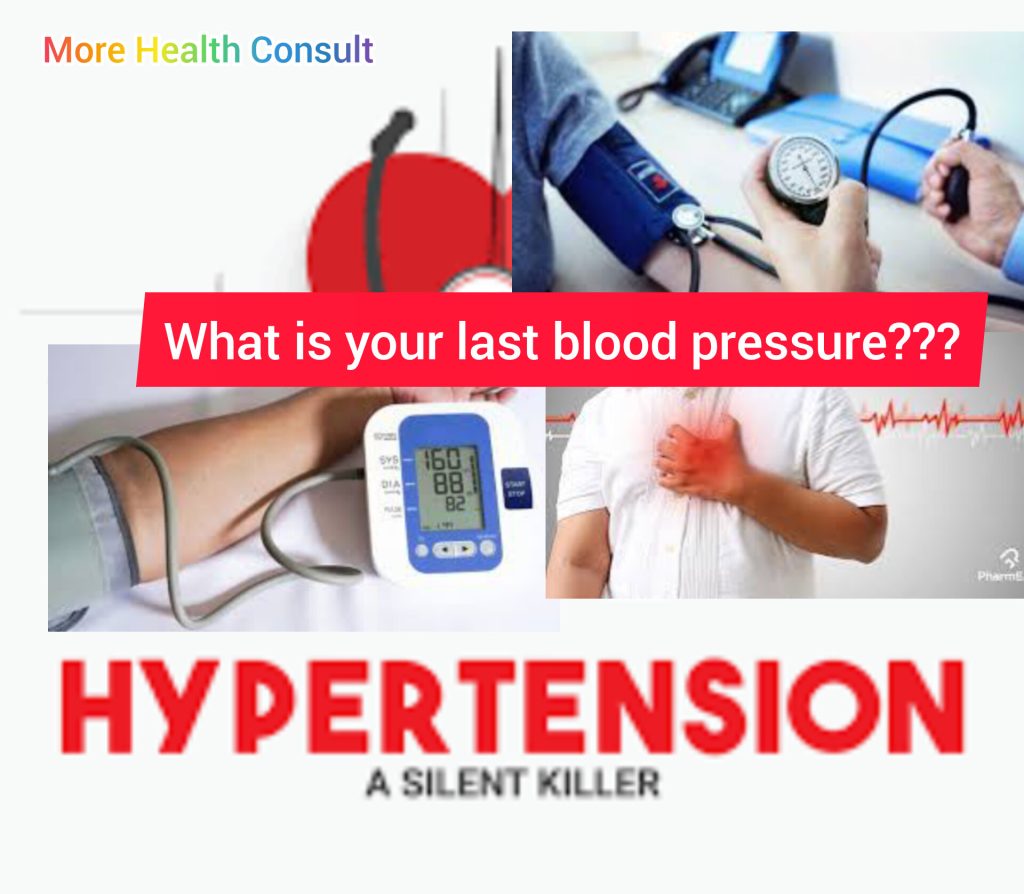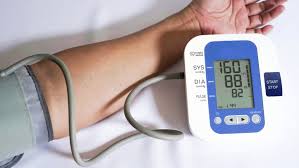
HYPERTENSION
Key facts
Hypertension is a major cause of premature death worldwide an estimated 1.28 billion adults aged 30-79 years worldwide have hypertension, which also affects two-thirds of people living in middle and low-income countries.
46% of adults with this condition are unaware that they are hypertensive. This calls for creating more awareness because is a silent killer.
Introduction
Hypertension is also known as high blood pressure, health care providers call it a silent killer because it has no symptoms in some cases and it can be dangerous if not treated.
Definition
Hypertension which is also known as high blood pressure is a condition in which the blood vessels have persistently raised pressure. It is when the force of the blood pushing against the arterial wall is consistently too high.
Causes/ risk factors
-
Primary hypertension:
This kind of hypertension develops over time, most people have this type of high blood pressure.
Risk factors include:
- Genes
- Age (older age)
- Obesity
- Family history
- Sedentary lifestyle
- Alcohol consumption
- High salt diet
- Stress
Secondary hypertension
This often occurs quickly and can be more severe.
Risk factors include:
- Congenital heart defect
- Endocrine tumors
- Kidney disease
- Thyroid disease.
Signs and symptoms
Checking your blood pressure is the best way to know. Most people with high blood pressure don’t feel any signs although very high blood pressure can cause:
- Severe headache
- Blurred Vision
- Difficulty in breathing
- Abnormal heart rhythm
- Confusion
- Fatigue
- Dizziness
- Chest pain
Diagnosis /how to know that 0ne is hypertensive
Getting a blood pressure check in the health care centre is the best way to know.
At least check your blood pressure every 2 weeks if you are not hypertensive especially if you are 50 years and above.
Treatment (medication) / other forms of management.
Healthcare providers like Nurse practitioners and medical Doctors might prescribe anti-hypertensive which is blood pressure-controlling medication. accompanied by:
- Frequent blood pressure check
- Take your drugs properly
- Reduce stress
- Eating a healthy diet
- Weight loss in cases of obesity
- Quitting alcohol
- Quitting tobacco’s
- Being physically active
- Decrease sodium intake
- Proper hydration
Complications
- Chest pain(Angina)
- Kidney disease
- Heart attack
- Stroke
- Heart failure etc.
KNOW YOUR BLOOD PRESSURE CATEGORY
BLOOD PRESSURE CATEGORY :
SYSTOLIC mmHg (upper number) and DIASTOLIC mmHg (lower number)
HIGH BLOOD PRESSURE (HYPERTENSION)
STAGE ONE: 130 – 139/ 80 – 89
HIGH BLOOD PRESSURE (HYPERTENSION)
STAGE TWO: 140 OR HIGHER 90 OR HIGHER
HYPERTENSIVE CRISIS (consult your health care provider immediately) HIGHER THAN 180 systolic and HIGHER THAN 120 diastolic
TAKE HOME NOTE
-
Get enough exercise
-
Cut down on sugar and refined carbohydrates
-
More potassium, less salt
-
Reduce processed and packaged food
-
Maintain a healthy weight
-
Eating more fruits, vegetables, and whole grains
-
Executing ways to manage stress is important to having healthy blood pressure and overall optimum health and wellness
-
Drink water
-
Avoid caffeinated and alcoholic drinks
-
Take your prescribed medication
-
Meet up with your appointment and ensure regular Blood pressure check
-
Make yourself Happy ALWAYS.
Conclusion
Hypertension has silently stolen many souls unaware. Early identification of raised blood pressure gives birth to adequate and prompt intervention of hypertension and its complications.
Let’s join hands by reducing deaths related to hypertension through creating awareness and ensuring screening.
Every family should have and be able to utilize a blood pressure monitor.


